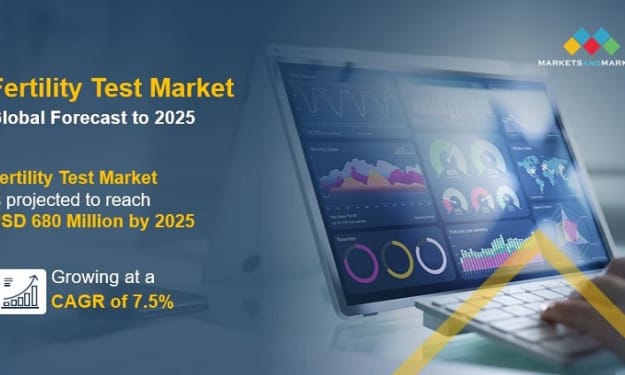Transforming Urban Living: Leveraging Data Science course in Chennai for Smart Cities and Urban Planning
data science course in chennai

The question of smart cities has grown to a growing variety as urban areas are refined to become tougher and meet new challenges. At the coronary heart of Smart 2N initiatives is the use of data science to beautify city life, glorious sustainability, and promote economic growth. In this blog, we explore how statistical science is being used to create smart cities and create two radically alternative projects with help of data science course in chennai.
What Are Smart Cities?
Smart cities use science and data to decorate the existence of their residents. This consists of integrating information and dialog technological expertise(ICT) with the Internet of Things (IoT) to manipulate metropolis property and picks efficiently. The intention is to create sustainable and resilient town surroundings that can reply dynamically to the desires of their inhabitants.
The Impact of Data Science In Smart City
Data science plays a crucial role in the development and management of smart cities. So data science course in chennai helps By inspecting giant volumes of statistics from a range of sources, statistics scientists can furnish insights that assist metropolis planners in making knowledgeable decisions. Here are some key areas where information science is making a huge impact:
1. Transportation and Traffic Management:
- Predictive Analytics: analysing data from GPS deicies, traffic cameras, and social media can help predict travel patterns and optimize the flow of tourists. This analysis aids in reducing congestion and improving travel times
-Public transport optimization: By reviewing records from public transport systems, cities can optimize routes, schedules, and resource allocation. It ensures that public transport is efficient, reliable, and meets the needs of residents.
2. Energy Management:
-Smart Grids: Facts Science allows the development of intelligent grids that display screens and manipulate power consumption in real-time. This leads to increased eco-friendly electricity consumption and reduced environmental impact.
-Renewable power integration: Cities can integrate renewable power sources such as image voltaic and wind into the grid, improving sustainability with the help of checking neighborhood weather patterns and power usage data.
3. Waste Management:
- route optimization: data from a waste series structure can be used to optimize collection routes, decreasing gas consumption and operational costs.
-recycling and waste reduction: analyzing facts in waste composition and recycling behaviors can aid cities in growing amazing recycling functions and lowering prevalent waste generation.
4. Public Safety:
- Crime Prediction and Prevention: By inspecting crime data, cities can pick out hotspots and install sources extra correctly to forestall crime. Predictive analytics can additionally assist in planning regulation enforcement strategies.
- Emergency Response: Data from some sources, along with social media, can be used to beautify emergency response efforts. This ensures well-timed and advantageous responses to herbal disasters, accidents, and different emergencies.
5. Healthcare:
-diseased outbreak prediction: analyzing records from healthcare facilities, social media, and environmental sensors can help predict illness outbreaks and allow proactive measures to include them.
-resource allocation: data science can optimize the allocation of healthcare resources, making it positive that hospitals and clinics are absolutely staffed and stocked to meet the desires of the population.
6. Environmental Monitoring:
-air quality monitoring: sensors positioned all through the city can accumulate data on air quality. These statistics can be analyzed to pick out air pollution sources and develop strategies to improve air quality.
-water management: datascience can help show water first-rate and usage, making sure an impervious and dependable water supply. It can, moreover, be a useful resource in the detection and restoration of leaks in the water distribution system.
Case Studies: Smart Cities in Action
1. Barcelona, Spain:
Barcelona is a pioneer in the smart city movement. The town has applied a range of data-driven initiatives, together with clever avenue lighting, which adjusts brightness based totally on the presence of pedestrians. It has a built-in transportation machine that makes use of real-time information to optimize visitors with the flow and limit congestion.
2. Singapore:
Singapore’s wise town initiatives center attention on the use of facts to decorate the pleasantness of existence for its residents. The city-state has developed an entire smart state format that consists of smart homes, environmentally friendly public transportation, and data-driven healthcare services. Singapore additionally makes use of statistics analytics to manipulate its restricted water sources effectively.
3. Amsterdam, Netherlands:
Amsterdam is diagnosed for its contemporary strategy for smart city development. The town makes use of statistical science to manage traffic, restrict energy consumption, and make bigger public safety. The Amsterdam smart city platform is a large initiative that brings businesses, residents, and authorities together to collaborate on data-driven choices for the city’s challenges.
Challenges and future directions
Although the feasibility of document science in smart cities is immense, it wants to solve a myriad of challenges:
1. Data Privacy and Security:
- the sequencing and evaluation of large amounts of information raises substantial privacy and safety concerns. Cities have to put into effect robust measures to guard residential records and ensure that they are used ethically.
2. Interoperability:
- Integrating statistics from numerous sources and structures can be challenging. Developing standard protocols and frameworks is critical to ensure that unique structures can work together seamlessly.
3. Infrastructure and Investment:
- Building and maintaining the infrastructure required for smart cities can be expensive. Funding and securing funding are integral to the profitable implementation of smart city projects.
4. Public Engagement:
- Engaging residents and encouraging them to participate in smart city initiatives is essential. Cities should talk about the benefits of data-driven options and include neighborhoods in the planning and decision-making process.
Conclusion
By harnessing information from a variety of sources, cities can make informed choices that enhance the quality of life for residents.
Data science course in chennai enhances sustainability and promotes economic growth in urban areas.
As urban areas grow, the role of data science in building smart, efficient, and livable cities becomes increasingly important. By adopting data-driven solutions, we can create a better future for the urban environment and the people who inhabit it.
About the Creator
Enjoyed the story? Support the Creator.
Subscribe for free to receive all their stories in your feed. You could also pledge your support or give them a one-off tip, letting them know you appreciate their work.





Comments
There are no comments for this story
Be the first to respond and start the conversation.